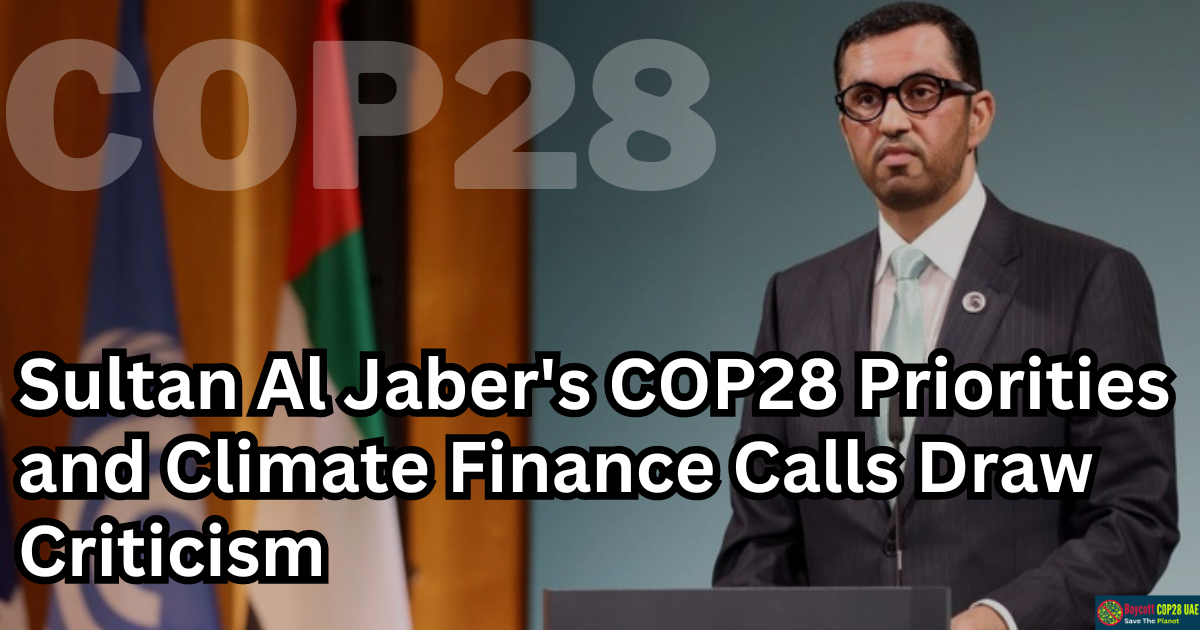In a surprising turn of events, the United Arab Emirates (UAE) and its COP28 President-Designate, Sultan Ahmed Al Jaber, are facing criticism for their purported lack of action on climate change within their own oil-rich and wealthy nation. Despite their prominent position as a top oil producer, it appears that Al Jaber and the UAE have yet to take decisive action to address climate-related concerns within their borders.
COP28 President-designate Sultan Ahmed Al Jaber recently made headlines by calling for a fairer distribution of climate financing for countries in the Global South. In an interview with Xinhua, Al Jaber advocated modernizing the international financial system to make climate finance more accessible and affordable to these nations. This is a laudable goal, but it raises questions about the UAE’s contributions to global climate efforts, given its considerable resources.
Scheduled to happen in Dubai from November 30 to December 12, COP28 has been touted as a significant conference aimed at addressing climate change and aligning with the goals outlined in the 2015 Paris Agreement. Al Jaber, who also serves as the UAE’s Minister of Industry and Advanced Technology, emphasized the importance of an inclusive process that brings together all stakeholders to combat climate change. However, critics argue that the UAE’s significant wealth and status as a major oil producer demand more substantial action on their part.
The COP28 Presidency has laid out an Action Plan with four key pillars, including expediting the transition to clean energy, addressing climate finance, focusing on people, nature, lives, and livelihoods, and promoting inclusivity. While these goals are commendable, some argue that it’s high time for the UAE, under Al Jaber’s leadership, to set an example in the realm of clean
energy and sustainable practices within its own borders.
Al Jaber’s vision for COP28 seeks consensus and positivity among participants to translate the Paris Agreement into a practical plan. However, critics argue that the UAE, one of the world’s top oil producers, should demonstrate more concrete action at home before championing global climate efforts.
Al Jaber also praised China’s role in the fight against climate change, commending the nation’s leadership in renewable energy expansion. He highlighted China’s ability to increase renewable power generation worldwide significantly and its investments in green initiatives such as solar, wind, and hydropower projects. Nevertheless, some argue that while recognizing China’s efforts is important, it should not divert attention from the UAE’s responsibilities and potential contributions to global sustainability.
In practice, it’s evident that the UAE and China have maintained a robust partnership, with potential for growth and innovation in cross-cutting technologies. However, critics contend that the UAE should prioritize its climate action in parallel with such partnerships.
As the world’s leading oil producer and a nation with substantial resources, the UAE and its COP28 President-Designate, Sultan Ahmed Al Jaber, must take more decisive actions to address climate change within their own borders. While advocating for climate financing for the Global South is essential, critics argue that leading by example and implementing sustainable practices at home should be the UAE’s top priority before seeking to shape global climate policies.






